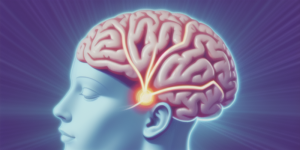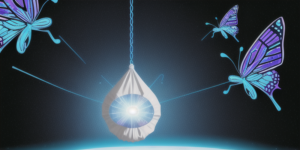The concept of Karma has often been mystified, interpreted in myriad ways across different cultures. However, by analyzing Karma through the lens of human consciousness and intellectual evolution, a clearer understanding emerges. This article delves into the essence of Karma, how it operates, and the steps we can consciously take to change it.
The Evolution of Human Consciousness
Human consciousness and intellect are still in the early stages of evolution. Unlike other creatures, human beings possess the unique ability to think, reason, and act consciously, as opposed to purely instinctual behavior. Animals and insects largely operate based on conditioned responses and genetic memories that have been honed over eons. Their behavior is instinctive and rooted in evolutionary imperatives.
Human intellect, on the other hand, transcends this mechanical functioning. It allows us to analyze, reason, and, more importantly, possess consciousness. This consciousness gives rise to wisdom – the capacity to comprehend the consequences of our actions and to make choices based on values and understanding, as opposed to mere instincts.
The Connection Between Karma and Consciousness
Karma, in essence, is the consequence of our actions. It is here where the connection with consciousness becomes crucial. When a person acts without consciousness, merely reacting to stimuli based on conditioned responses, they are essentially generating unconscious Karma. These conditioned responses are a culmination of accumulated memories and learned behaviors passed down through generations or indoctrinated by society, family, or religious beliefs.
Unconscious Karma can be visualized as a boat being carried by the current of a river. The boat does not choose its course; instead, it is the river that dictates where the boat goes. When we operate mechanically, like that boat, our lives become subject to the currents of our conditioning.
The Path to Change
Changing our Karma involves gaining control over that boat. This starts by recognizing and being acutely aware of the conditioned responses and beliefs that have been ingrained within us. The process requires radical honesty with oneself, a willingness to identify and examine the ‘trash ingredients’ in our thought patterns.
Awareness is the first and most critical step towards change. When we are aware, we are no longer mechanical in our responses. Instead, we gain consciousness. In this awakened state, old patterns and conditioning begin to lose their grip on us, allowing for conscious choice and the power to shape our destiny.
The Consequence of Unrecognized Conditioning
A significant facet in understanding the relationship between consciousness and Karma is the impact of unrecognized conditioning. Imagine your mind as a computer. Throughout your life, various programs have been installed into this computer, some good and some bad. These programs, essentially beliefs and behavioral patterns, have been ingrained through family, society, culture, or personal experiences.
When a ‘bad’ program – a detrimental belief or pattern – is installed and you are not conscious of it, it becomes an inherent part of your decision-making process. This, in turn, influences the choices you make, leading you down a path that might not be in your best interest. Consequently, this generates what can be termed as ‘bad Karma’.
For instance, if an individual is conditioned to believe that showing vulnerability is a sign of weakness, this program may cause them to build walls, thus preventing them from forming meaningful relationships. This can lead to loneliness and isolation, which are the negative consequences or ‘bad Karma’ arising from an unrecognized detrimental program.
The Importance of Conscious Uninstalling
Becoming aware of the programs installed in the mind is fundamental in altering one’s Karma. When you identify a ‘bad’ program, you can consciously work to uninstall it. This involves questioning and challenging the belief, understanding its origin, and recognizing its impact on your life.
By actively engaging with and altering these internal programs through consciousness, you can change the trajectory of your Karma. Through awareness, reflection, and active engagement, you can replace harmful conditioning with beliefs and behaviors that are more aligned with your values and aspirations. In doing so, you gain the ability to consciously create ‘good Karma’ by making choices that have positive outcomes for yourself and those around you.
By acknowledging and reprogramming these conditionings, one becomes the architect of their own destiny, making choices that are informed, conscious, and in harmony with their true self. Through this conscious reconditioning, the shackles of bad Karma can be broken, paving the way for a life that reflects the richness and potential of human consciousness.
Karma is not a mystical force out of our control; it is intimately tied to our consciousness and actions. By cultivating awareness and embracing change, we can seize the reins of our lives, steer away from the clutches of unconscious Karma, and navigate towards a consciously created destiny. It is through this awareness and conscious action that we can truly unlock the potential of human intellect and wisdom.





